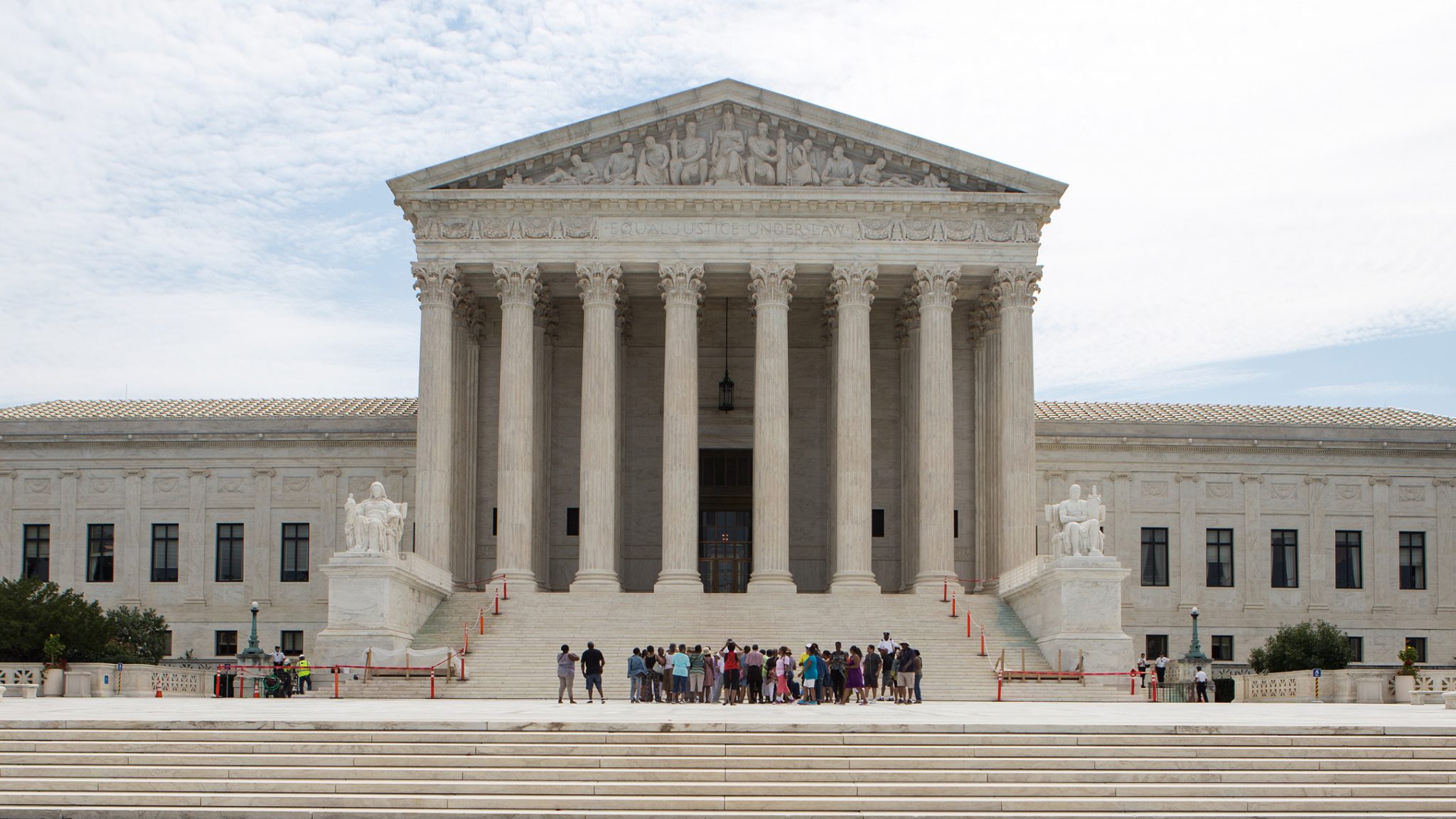How the U.S. Supreme Court Has Shaped Our Understanding of the Constitution
Constitutional law experts William Treanor and Garrett Epps discuss the Supreme Court’s monumental power to interpret the Constitution, despite itself being sparsely mentioned in the document.

The Supreme Court of the United States has been responsible for shaping the cultural and political landscape of America in its landmark decisions, but the Constitution’s description of SCOTUS doesn’t quite match what it looks like today.
“The vision of the court was kind of under-theorized. Nobody in Philadelphia sat down and said, ‘What is this court going to do, and how are we going to create it?’” –Garrett Epps, University of Baltimore
Constitutional law professors William Treanor and Garrett Epps say the court has evolved drastically, even in the past few years, to become the one we know now.
Listen: William Treanor and Garrett Epps on the role the Supreme Court plays in our democracy.
Guests
William Treanor is a constitutional historian and dean of Georgetown Law. He says that SCOTUS decisions powerfully affect people’s lives on a day-to-day basis. “I would say over the last 15 years, the Supreme Court has been much more present in the popular eye as they’ve ever been,” Treanor says. “The court is much more evident to the American people. And I think for the first time we’re seeing more of a personal relationship, and the members of the court are more well-known than they’ve ever been.”
Treanor says he supports implementing term limits for justices, but longer ones of 15-20 years. “When [the founders] drafted the Constitution, they made a conscious decision of lifetime appointments … We’re now very aware of the consequences of people’s longevity.” He says though SCOTUS justices are not elected, they still have the power to give Americans a voice. “I think the core role of [SCOTUS] should be to make democracy work … The court is not a democratic institution, but it should be supporting democratic institutions and supporting the right to vote.”
“The court is much more evident to the American people. And I think for the first time we’re seeing more of a personal relationship, and the members of the court are more well-known than they’ve ever been.” –William Treanor, Georgetown Law
Garrett Epps is professor of law emeritus at the University of Baltimore Law School. He says the perception of SCOTUS as being a champion for equality and justice is not necessarily the case. “Historically, at least for the first 150 years and arguably today, the court’s role has not been about the American dream or reaching down to lift up the humble, but it’s been just the opposite … the court’s role has not been one of promoting liberation … but in fact has been the reverse. The court has been the firewall of privilege.”
Epps says many SCOTUS decisions have been “rigged” for the benefit of large institutions and individuals. “After the New Deal cases the court started to have what we think of as judicial review, which is concerned with individual civil liberties … although its record is spotty … But the court is always nervous when it comes close to questions of equality.”
On the rather undemocratic aspects of SCOTUS like private appointment of justices and lifetime appointments, Epps says the founders did not anticipate the outsized role the court would have in our democracy. “The vision of the court was kind of under-theorized. Nobody in Philadelphia sat down and said, ‘What is this court going to do, and how are we going to create it?’” He says these flaws in the court’s founding paved the way for the partisan shift of SCOTUS in 2016. “The court … has been taken over by one of the two political parties for partisan ends,” Epps says.
Trusted, accurate, up-to-date.
WDET strives to make our journalism accessible to everyone. As a public media institution, we maintain our journalistic integrity through independent support from readers like you. If you value WDET as your source of news, music and conversation, please make a gift today.

